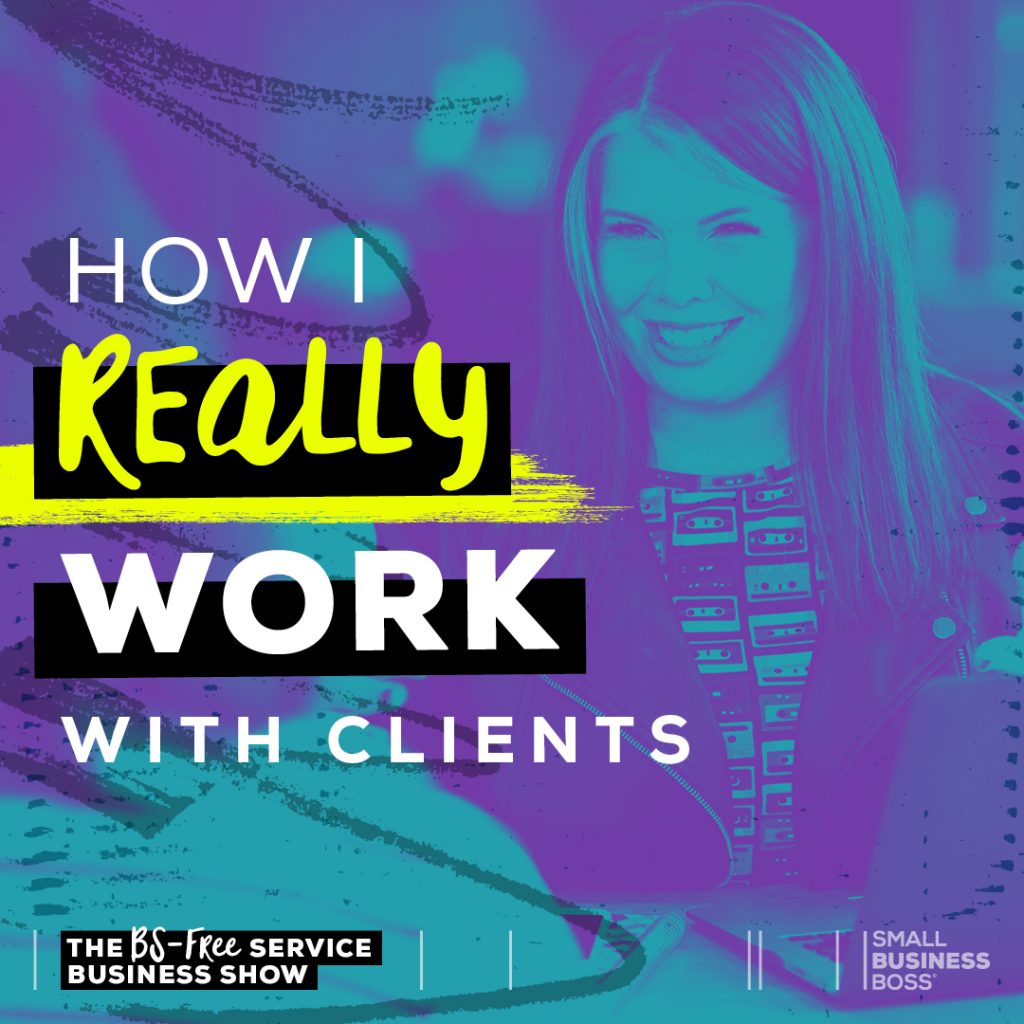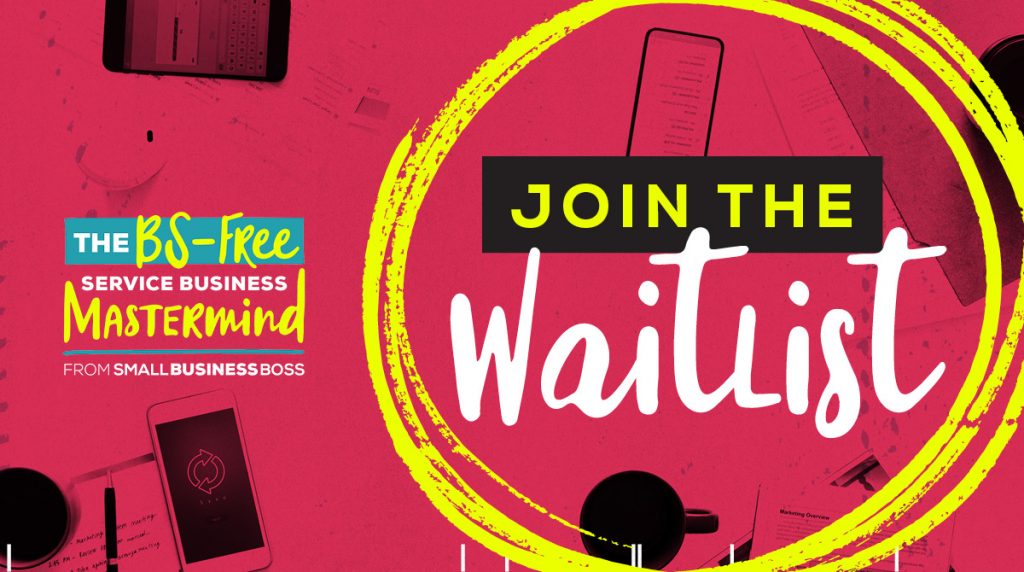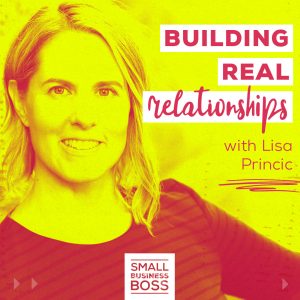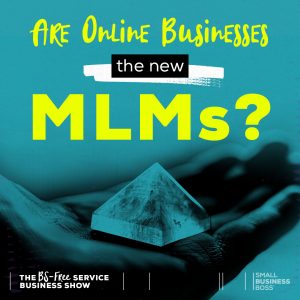
Search the site:
How I Really Work With Clients
Have you ever had a coach try to jam you and your business into a cookie-cutter system or blueprint? I know I have, and spoiler alert: it didn’t work. In this episode, we’re looking at the problem with these blueprints, and how when we work with clients of any kind we need to embrace the nuances and complexities of their unique businesses.
If there’s one thing that’s really messed with my business over the years, it’s one-size-fits-all advice. You know, that cookie-cutter, do X and Y will automatically happen type binary thinking that has us robotically executing on tactics.
And believe me, I’ve tried. Over and over again, and it never felt right, but I deferred to the experts thinking they knew better than I did.
I was so very wrong. They weren’t right. They weren’t in the ballpark of what was right for me and my business.
I wasted so much time on everything from a failed course launch to dumping money into Facebook ads, and as annoying as it is to me now, I know that it’s the reason I’m so committed to the way I work with my clients today.
At the heart of what I do is a commitment to not providing one-size-fits-all business advice. And yes, I know so many people say that, but it’s completely untrue. It’s yet another load of BS.
The online business industry is built on bullshit blueprints that are about selling you a specific way of doing things around a “proven” system….with little wiggle room for how things are done.
I know because as hard as I tried, this crap didn’t work for me. (And let’s be real, if it’s not working for someone with YEARS of experience running a business and working in marketing….who is it really working for?!?!)
And I still see it every day. Especially when I’m dealing with the aftermath of these “proven strategies” gone wrong when working with my clients.
Why This Cookie Cutter Bullshit Exists
Before we talk about how not to get sucked into this, and how I work with clients to ensure this is NOT happening, I want to chat quickly about why we have this cookie-cutter BS problem.
It’s simple. It’s about sales and marketing.
It’s easier to market and sell a system than it is to have a more flexible potential set of tools and outcomes.
I get it. We all need some type of container for the work we do with clients. I have my own fair share of frameworks I use with clients, but it’s never meant to box anyone in. Instead, they exist to help them focus their limited time and energy.
And here’s the thing. They’re designed specifically for service business owners and there’s enough latitude within them to play to their unique businesses, experiences and needs.
So much of what’s out there currently is offered to everyone under the sun with little understanding of the nuances of different types of businesses, or distinct industries.
And that’s because the people creating these frameworks don’t have a solid understanding of the difference between a B2B business and a B2E or B2C one. They don’t get that a photographer working with brides needs something different than a copywriter working with a tech company.
Plus, so many of these people haven’t worked with a client in years. They’re focused on selling their solution based on a limited viewpoint of working with clients.
This problem is compounded by the relentless push for service providers to create leverage or scale in their business in order to grow. So they take what they know and turn it into a course or program or mastermind at the behest of their expensive coach who only knows how to do that type of business model, and has zero idea how to scale services.
I wish I was being sarcastic here, but I’m not. This is the reality of online business where we have people with little real-world experience running your type of business teaching you how to do it, and that’s reinforced by the message that services inevitably lead to burnout and you’re limited by offering services.
Listen, if you want to move away from services, I’m not going to stop you, but I want you to stop buying into these service business tropes. Decide based on your reality, not the latest online business message about the problem with service businesses.
How I Carefully Customize the Experience for Every Client
To help you wade through all of this cookie-cutter BS, I wanted to give you some insight into how I work with my clients. This isn’t a Maggie Patterson infomercial, but rather it’s an effort to show you the layers of complexity, analysis and nuance that we should consider when working with anyone.
With Small Business Boss, I work with clients in two ways. Either through one of our masterminds, or in one-off consulting sessions. The approach for both of these is the same, and it’s rooted in focusing on the unique needs of each business, along with their values, strengths, and skills. (More to come on values, strengths and skills in next week’s episode.)
Before we get into each of the factors, I want to point out that in my role as a mentor or consultant, I see myself as a thought partner. I provide insights, recommendations and guidance based on each client’s needs. Sometimes I’m a sounding board or a contributor to decisions, but the final call is always theirs.
Every single client I work with is responsible for their results and they have agency over how they run their business. That’s critical for each of us to remember, as so much of this cookie-cutter blueprint problem is that it’s designed to tell you what to do, which erodes your agency and self-trust.
Here are the four main factors I use to customize how I work with every one of my clients.
What Type of Business Is It?
With the realm of service businesses, the type of business varies significantly. What a growing agency needs versus a brand new freelancer is considerably different and my guidance needs to be geared as such.
Too many times, we want to categorize all services as being the same (at least in the online business world), when the strategies and tactics we use need to be dictated by the type of business the client is running.
What Industry Are They In?
This next one is a missing piece of the puzzle in the online business world, as there’s a lack of understanding of how different target clients, and different industries have completely different norms and needs.
I want to know if your target client is B2B, B2E or even B2C before I weigh in. And then I want to know if you have a specific vertical within that industry. For example, not all B2B target clients are the same, and an industry like financial services has distinct norms when compared with healthcare or tech.
How Are Services Delivered?
Another key consideration is how services are delivered, and this is where there’s a massive difference between coaching and done-for-you services. I can’t emphasize this enough, as it’s something that’s so easily overlooked in these programs and masterminds.
How a coach delivers their services couldn’t be more different than what a writer or designer may need. Trying to create one-size-fits-all systems for two unique businesses is where so many people get stuck wasting time.
After all, a coach is selling coaching which may be in 1:1 or group sessions, while a DFY service provider is providing a tangible deliverable. Yet, I’ve seen one too many coaches who know nothing about DFY services selling their cookie-cutter solutions that really mess up the minds and businesses of people doing creative or technical work.
How are Services Marketed and Sold?
This one is a big one, and honestly, it’s the one that gets me so fired up. A longstanding problem I’ve seen is that this industry pushes tactics like building your email list as an essential marketing tactic.
It may very well be essential if you offer group programs or work in the B2E space, but so many people who do NOT need to build an email list waste their time and money on this tactic. If you work with B2B companies, it may be completely unnecessary or if your target client isn’t into email, again, you’re wasting your time.
On the sales side, there’s a message that you shouldn’t do proposals and instead offer packaged services. I think we all know I believe strongly in having packages, but that doesn’t automatically mean you can sell things to your clients directly from a sales page. You may need a consult call, or a proposal to help provide them with the tools to decide.
This reductive sales and marketing advice that gets dished up in this industry rarely delineates that these tactics may not be a fit for your business based on your target client, industry or type of service.
And that’s exactly why I spend a great deal of time and energy getting to know my client’s businesses. For me to provide thoughtful guidance that actually benefits their business, I need to understand each of these layers, otherwise, I’m simply dishing up hot takes that don’t actually help, and could potentially hurt.
I’ll be the first to say that I can only work with a limited number of clients at a time, but that’s also how I prefer to work. I don’t want to compromise the quality of my client experience, and ultimately their results by trying to create a one-size-fits-all type mastermind solution.
If this is the type of support you want, head over to our masterminds page to get on the waitlist for the mastermind that’s right for you.
The BS-Free Mastermind starts October 1st and will be opening up soon!
As part of one of our masterminds, we put people first. You’re never a number and we put people before profits and we pull our peers up with us. That’s part of what makes us unique, and it’s baked into everything we do.
Speaking of baking, in the next episode, we’re going to talk more about what makes your business unique with something I’m calling the aligned service business model. (And don’t worry it’s not some cookie-cutter bullshit!)


I’m Maggie Patterson (she/her), and services businesses are my business.
I have 20+ years of experience with client services, am a consultant for agency owners, creatives, and consultants, and vocal advocate for humane business practices rooted in empathy, respect, and trust.
Read or Listen to the Latest
For Solo Business Owners

Growing a solo service business is tough.
It’s even harder when you’re bombarded with BS advice that steers you away from your values and why you started your business in the first place.
This is the podcast for solo creatives and consultants who want to remain as a team of one and have zero interest in the hustle and grind of typical business teachings.
Subscribe now and never miss an episode.
For Micro Agency Owners
Most podcasts for agency owners obsess over revenue growth as the ultimate success metric.

But here’s the truth: not everyone wants to make millions. Your goal might be to build a sustainable business that lets you have a life and doesn’t run you into the ground.
Join me as I spill my shameless confessions and share everything I’ve learned about building a micro agency that skips the BS of tired and typical agency teachings.
Follow Now on All Major Podcast Platforms








